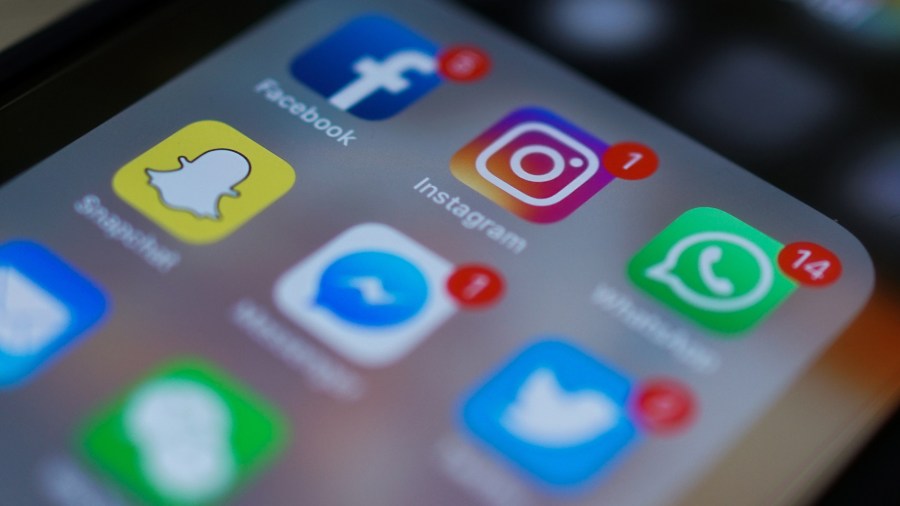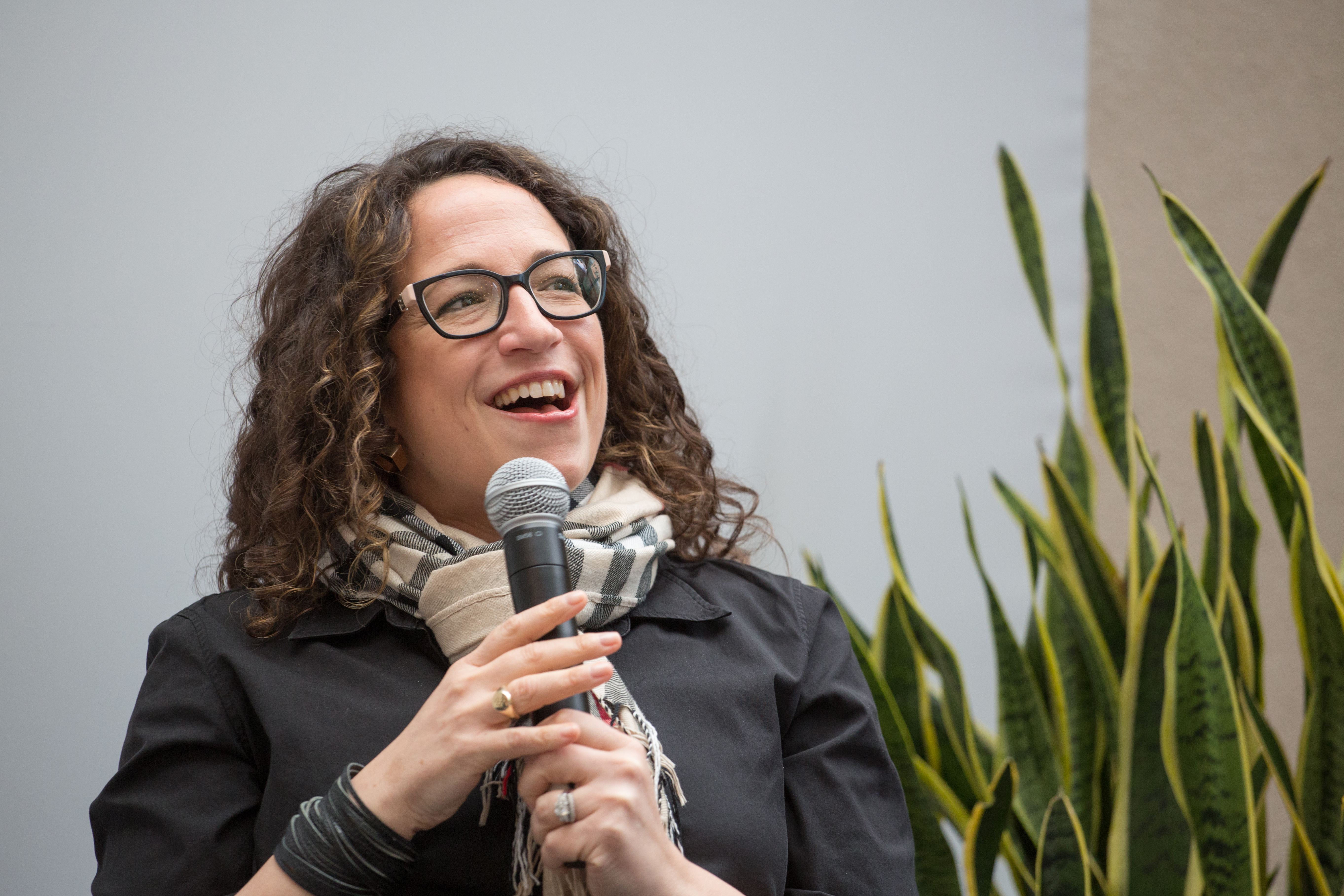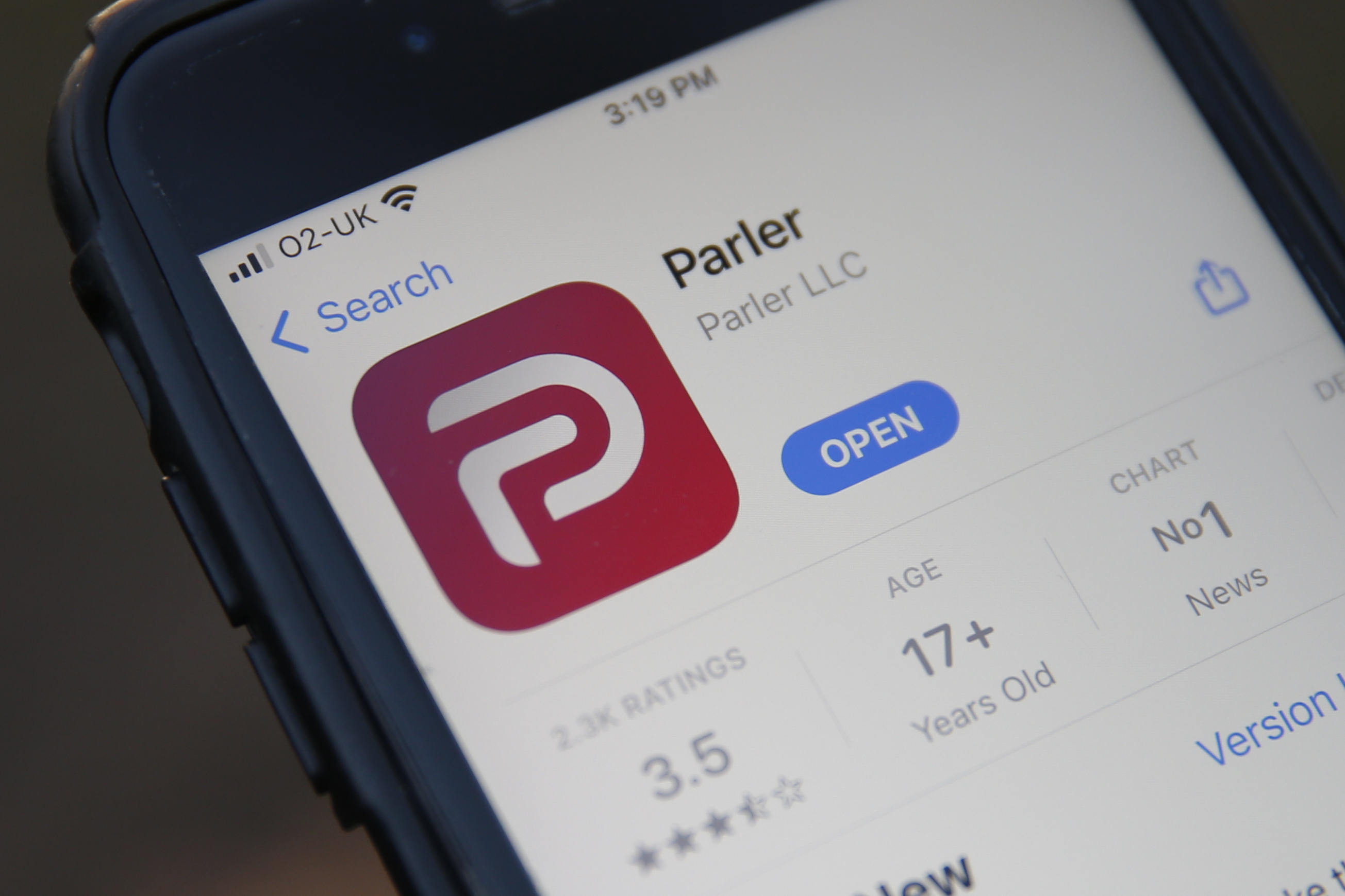Will “cancel culture” come for us all?

Pro-Donald Trump Republicans are furious that Twitter, Facebook and Amazon Web Services have taken the president’s accounts and the app Parler offline. And as you heard Rep. Jim Jordan (R-Ohio) say this week as the House debated whether to impeach the president, many are calling it “cancel culture.”
This has been a controversial topic, but I’m going to dive into this in “Quality Assurance,” where I take a second look at a big tech story in the news. Last March, I spoke with futurist Amy Webb, who predicted that cancel culture and the backlash to it would become an even bigger deal in the year ahead. She said that’s proving true in more ways than she expected. The following is an edited transcript of our conversation.

Amy Webb: In the aftermath of the attack on the Capitol, Eric Trump very publicly proclaimed that his family [was] being canceled. And it’s interesting to see the push-pull, the tension, between those seeking to cancel others and those complaining that they themselves have been canceled. This is one of these situations where the technology enabling all of this is both the megaphone, the infrastructure and also the “stop” button. So the question really is, who’s the ultimate arbiter here? What are the rules? They’re becoming less and less clear.
Molly Wood: How do we tease apart the arguments about cancel culture that are kind of specious and the real behavior that is behind it?
Webb: So here’s the predicament: There’s a glomming-on when you feel like you agree with somebody. The instruments of technology have made that really easy. I mean, let’s think back a few months ago, when everybody was posting a black square on their Instagram accounts as a way of signaling their discontent. Corporations were doing that, too. That has translated to real-world cancellations. I mean, we have started to see corporate denials of service, ranging from [Amazon Web Services] kicking Parler off to Facebook and Twitter, and more recently YouTube, silencing Donald Trump’s accounts. And that, for some, has social consequences, but for others that has real-world business consequences. And we’re in this situation where we are both inventing the rules and playing the game at the same time.
Wood: There are many people who say, particularly, let’s say, like on Black Twitter, that there was never a mechanism to address problems before and that what came to be seen as cancel culture was really almost like collective bargaining happening on Twitter. It was a whole bunch of people who could, like you said, express the same opinion and get a result when they never could have before.
Webb: Well, the lifeblood of cancel culture is dopamine. It’s the hit that we get from feeling like we’re a part of a movement. And you can see that visualized in metrics. There are some easy fixes to this. We’re not going to fix our culture overnight, the actual problems that we are having, but we can totally address the mechanisms that are helping to fan the flames. Twitter could take away metrics, so then the general public no longer sees the number of times something has been retweeted or liked. Maybe you as the original poster could see that, but others cannot. That’s one way to reduce that dopamine hit to reduce the sensation that we are feeling, the sense of urgency, because urgency is also a part of cancel culture. And the same could happen on Facebook. There are addressable problems here. There’s an argument to be made that canceling cancel culture gives rise to additional cancel culture. It becomes this vicious cycle. I mean, that’s what we’re seeing right now with Eric Trump and the remarks that he’s making about cancel culture, and specifically, with regard to his dad.
Wood: I think that’s where some of the resentment comes in. I do think that around the time of the Me Too movement, what has come to be called cancel culture was an exercise in power by people who traditionally have not had power. And that was part of the democratizing effect of social media that a lot of people could say the same thing all at once about a misbehaving man or white supremacy and get a result.
Webb: And that’s the tricky side of this because arguably, the net effect of that movement did real good in society. And so canceling the mechanisms that would have led to that may not be the best for our longer terms. But the flip side is that we wind up in a situation that we’re in now. And if you stop for a moment and think about the words, the semantics, “cancel culture” is alliterative, it’s easy to remember, it’s an active verb. And it itself is conceptually easy for people to understand, whereas doxxing or something else may not be.
Wood: Right, because cancel culture was a more positive reframing, in some ways, of targeted harassment, which I think we have to be honest about. That has been the mechanism of the far right online, and it’s like cancel culture was the leftist rebrand.
Webb: I hadn’t thought about that before, but you’re absolutely right. And I think that that is some of the argument that is currently being made by those on the far right, which is that they themselves now are being targeted and harassed. And listen, I’m a target of some of that hate. And as much as it pains me to say this, they do have a point. Cancel culture impacts them through targeted attacks the same way that they are targeting others. The solution to all of this would be for somebody to come out to the playground, blow the whistle and tell us all to settle down or we’re going to get detention. By that, I mean leadership, which we have had very little of over the past few years.

Related links: More insight from Molly Wood
Here’s a link to Amy Webb’s writeup on cancel culture and the backlash to it, the impact and the questions about it. Because look, no matter what you think, it is a thing, a business force, an economic force, a social force and so far the conversation isn’t going anywhere. It’s good to point out here that accountability for actions, incitement, crimes, hate speech, is also a thing that needs to happen, and certainly companies can do whatever they want, because once again, censorship is the tool of governments. But — and I know no one likes to hear this kind of thing right now — it’s complicated.
And let’s be honest, these cancellations have a lot of holes in them. I mean, who do you know who’s really been canceled, gone away and never come back? But I’m going to remind everyone again that the real reason this is so hard to untangle is the money. The New York Times has a good piece from Thursday on how Facebook users and would-be influencers started discovering that engagement really jumped when they stopped posting about gratefulness or new shoes and started posting about coronavirus conspiracies, political misinformation or racist rants.
I actually tweeted a piece we did on this show back in 2018 about how YouTube’s business model was encouraging people to post increasingly extreme content that sort of started with filling a pool with trash and slime and jumping in, or any dumb Logan Paul thing, like visiting a suicide forest in Japan, and got us, in part, here. Perverse incentives lead to perverse outcomes.
The future of this podcast starts with you.
Every day, the “Marketplace Tech” team demystifies the digital economy with stories that explore more than just Big Tech. We’re committed to covering topics that matter to you and the world around us, diving deep into how technology intersects with climate change, inequity, and disinformation.
As part of a nonprofit newsroom, we’re counting on listeners like you to keep this public service paywall-free and available to all.
Support “Marketplace Tech” in any amount today and become a partner in our mission.












